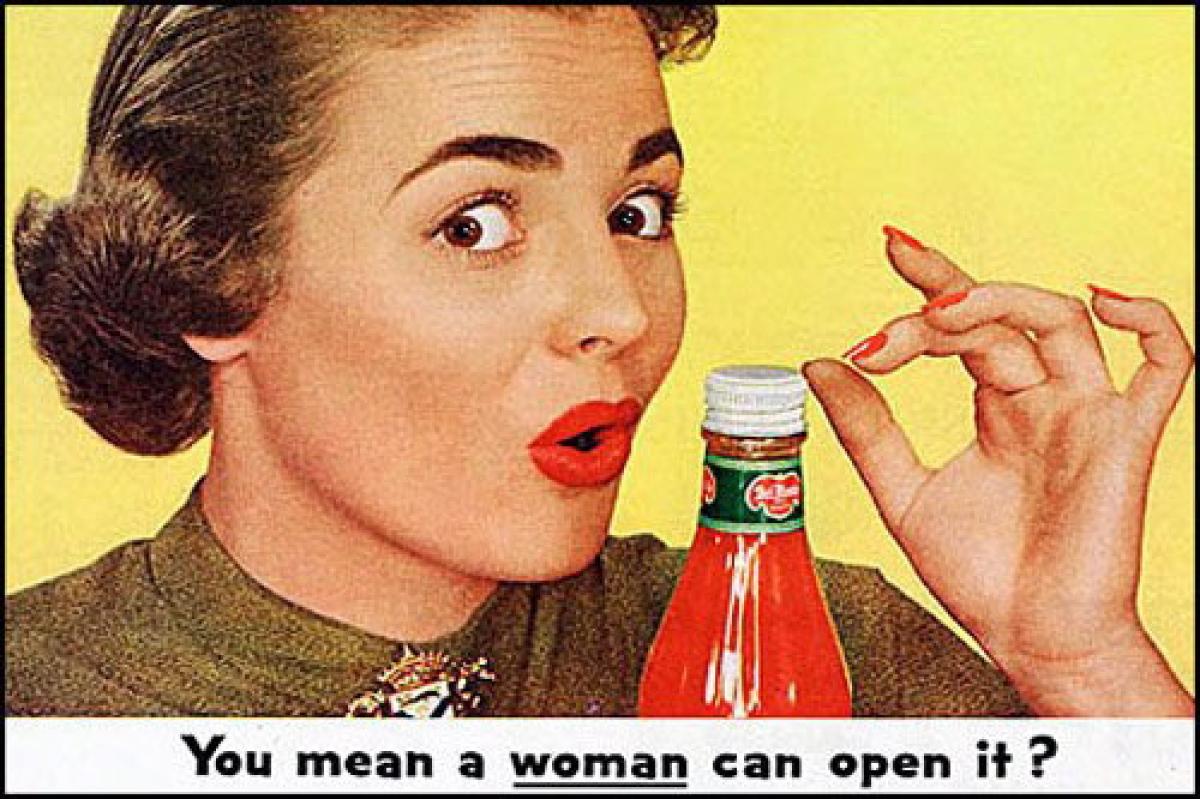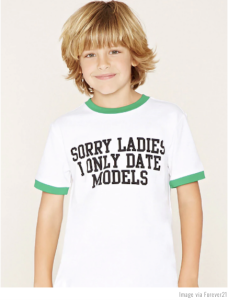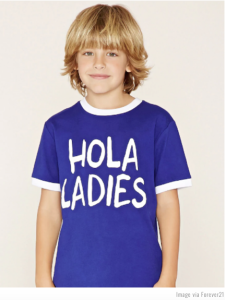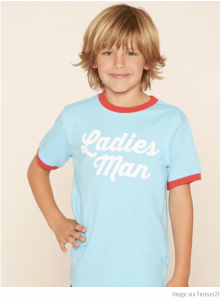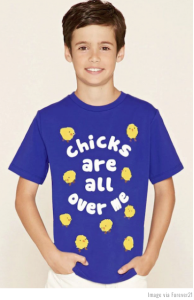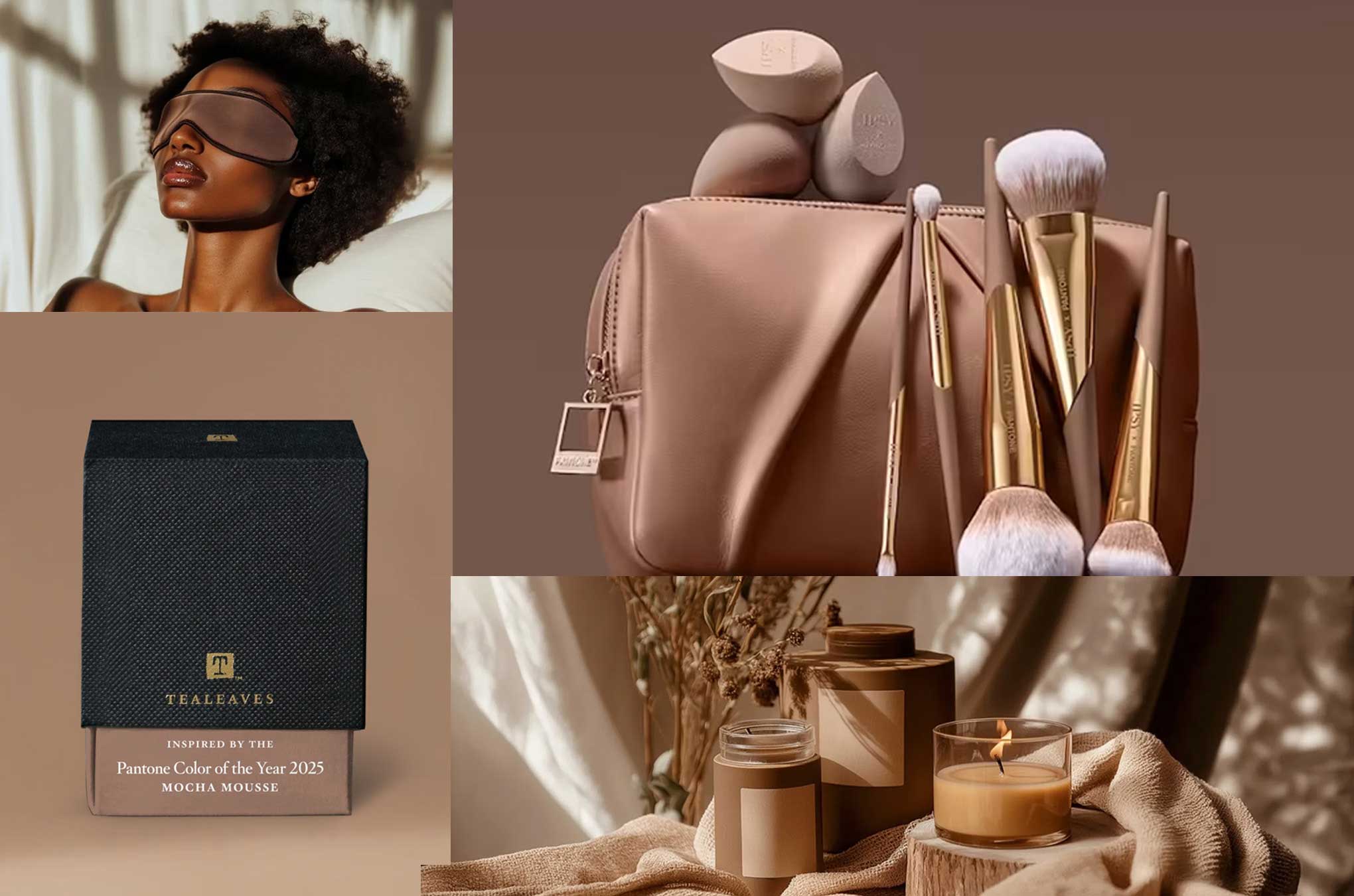Whether you’re watching a commercial, walking through a clothing store or walking down a busy city street, you may have caught your eye on an advertisement or slogan that rubbed you the wrong way. Advertisers have been using stereotypical and sexist marketing techniques for decades — just like the Del Monte ketchup ad in the photo above from 1953. They think these techniques work, but the lady Ducks beg to differ. Some people may think these specific marketing campaigns are harmless and only a joke, but stereotyping and ridiculing a certain sex is never the right way to sell a product.
We’ve compiled five of the most sexist marketing trends that we just wish would stop. One can hope, right?
5. Retail T-Shirt Slogans
There’s been a disturbing trend in the retail world about insulting and sexist sayings and phrases on T-shirts. JCPenney pulled its girl’s shirt with the slogan “I’m too pretty to do homework” from stores — the shirt implied girls that aren’t smart enough to do homework. Old Navy pulled its toddler’s shirt bearing the mottos “Young Aspiring Artist Astronaut” and “Young Aspiring Artist President,” — the shirts implied that young kids shouldn’t dream of being artists.
And now, Forever 21 just recently pulled its boys’ shirts with appalling slogans such as:
4. Stereotyping
Another popular and sexist trend in commercials and print advertisements is the stereotyping of women as the ones who do the laundry, do the cleaning and take care of the kids. Stereotypical ads have been around forever, but just recently LG Canada came out with their own marketing campaign geared toward women.
The LG TwinWash can do two loads at once, saving us women extra time for all the things we do best.
Like shopping,

and getting manicures and pedicures,
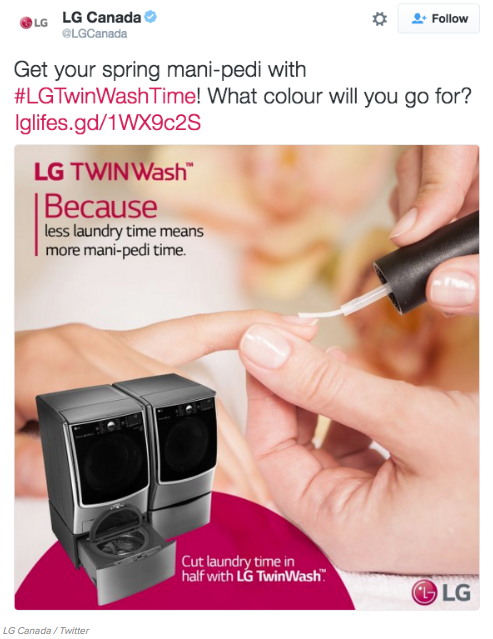
and taking care of the children.
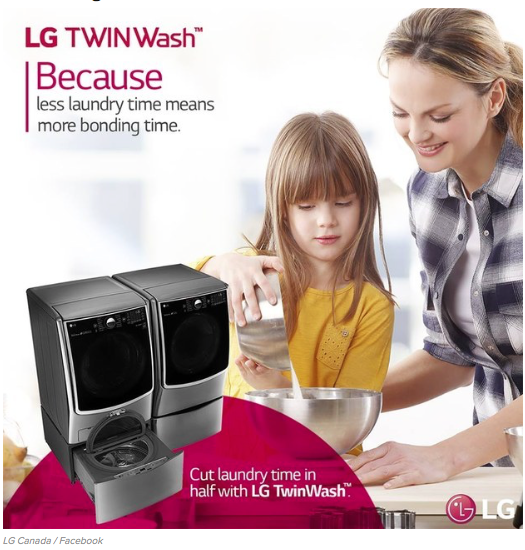
3. Sexualizing
Probably the most common sexist advertisements use women as sexual objects. Sexualizing women to sell products dates back decades, but some companies are STILL using women to sell their products.
A suit company Suitsupply has been defending its controversial ads, saying the ads are only depictions and that the pictures are photoshopped and shouldn’t be taken seriously. But just because you Photoshop something doesn’t mean it doesn’t offend anyone, or make anyone feel like an object.



The “Toy Boy” campaign consists of images showing men in Suitsupply suits sliding down the bodies of women, laying on top of them and sitting on them. The images are being described as exploitative and degrading to women, and we can’t help but agree.
2. Super Bowl Commercials
The Super Bowl is the one day out of the year where companies and corporations pay millions of dollars for a commercial spot during the game. But, to make their commercials stand out, companies go the extra mile. Anything and everything goes when it comes to these special ads. Popular trends that we’ve seen are barely-clothed women eating hamburgers, scantily clad women eating Doritos and stereotypical women caring for their husbands while the boys relax and watch the game.
Saturday Night Live created this great sketch to sum it up.
1. “Pink It and Shrink It”
Last, but certainly not least, is this marketing campaign that put the internet into a craze. Bic, the popular pen company, created a new product geared toward women. It’s called Bic for Her and the pens come in the “womanly” colors of pink and purple.
The product shocked people everywhere as being inconsiderate, sexist and stereotypical of women. This is a prime example of “Pink it and Shrink it,” which is an ad term for marketing things toward women. If you shrink down the product so a woman is able to hold it and change the color to be more feminine, then women will obviously be more inclined to purchase your product whether it’s guns or golfwear or shoes.
Ellen DeGeneres had a lot to say about it, so we’ll let her take it away.
We’d like to give a nod to our client, Ivy Citizens, who deplored the Pink it and Shrink it trend and started a great athleisure company for girls and women who are defined only by their own power.
These same trends have been around for decades, but when does will they stop? These advertisements and commercials are hurtful, degrading and disrespectful to women, and no company should use these terrible marketing techniques again. What do you think is the most sexist campaign you’ve seen? Comment or hit us up at @yellowduckmktg!

